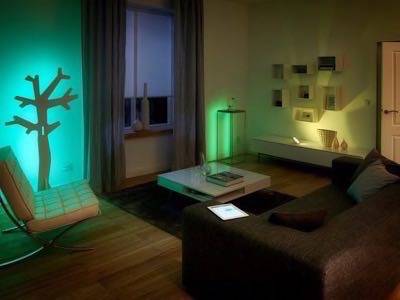Philips was forced to reverse recent software updates this week when it was revealed that updates to its Philips Hue wireless lighting system cut off access to previously supported light bulbs made by other companies.
Here’s how Philips explained the decision:
While the Philips Hue system is based on open technologies we are not able to ensure all products from other brands are tested and fully interoperable with all of our software updates. For guaranteed compatibility you need to use Philips Hue or certified Friends of Hue products.

Hue You Calling A “Friend”?
Philips has had a Friends of Hue program for partners, but until recently, that was limited to Apple’s HomeKit software for connected-home devices and Nest’s smart-home products. Philips only listed Philips-manufactured devices under the “Friends of Hue” section on its website. Last week, Philips announced Bosch, Logitech, and Samsung SmartThings as partners. All of their connected home products, applications, and platforms will integrate with Philips Hue.
That invite-only approach clashes with the principles of the ZigBee alliance, a group promoting a networking standard that controls these smart lighting systems. In theory, Zigbee-compatible devices should work together.
Philips is rolling back the firmware updates that blocked access to third-party bulbs, a move that should be completed by December 21. But it seems like in the long term, Philips wants manufacturers to sign up for Friends of Hue and get certified. That’s a strategy that looks similar to Apple’s MFi program, which tightly controls the devices that can work with iPods, iPhones, and iPads.
For smart-home device makers, the question will be whether to get in line and go with Philips official certification program, skip that and count on continued ZigBee support, or opt to support more open smart lighting systems. If Philips’ move chastens enough hardware developers, it may find that Hue is left in the dark.

















